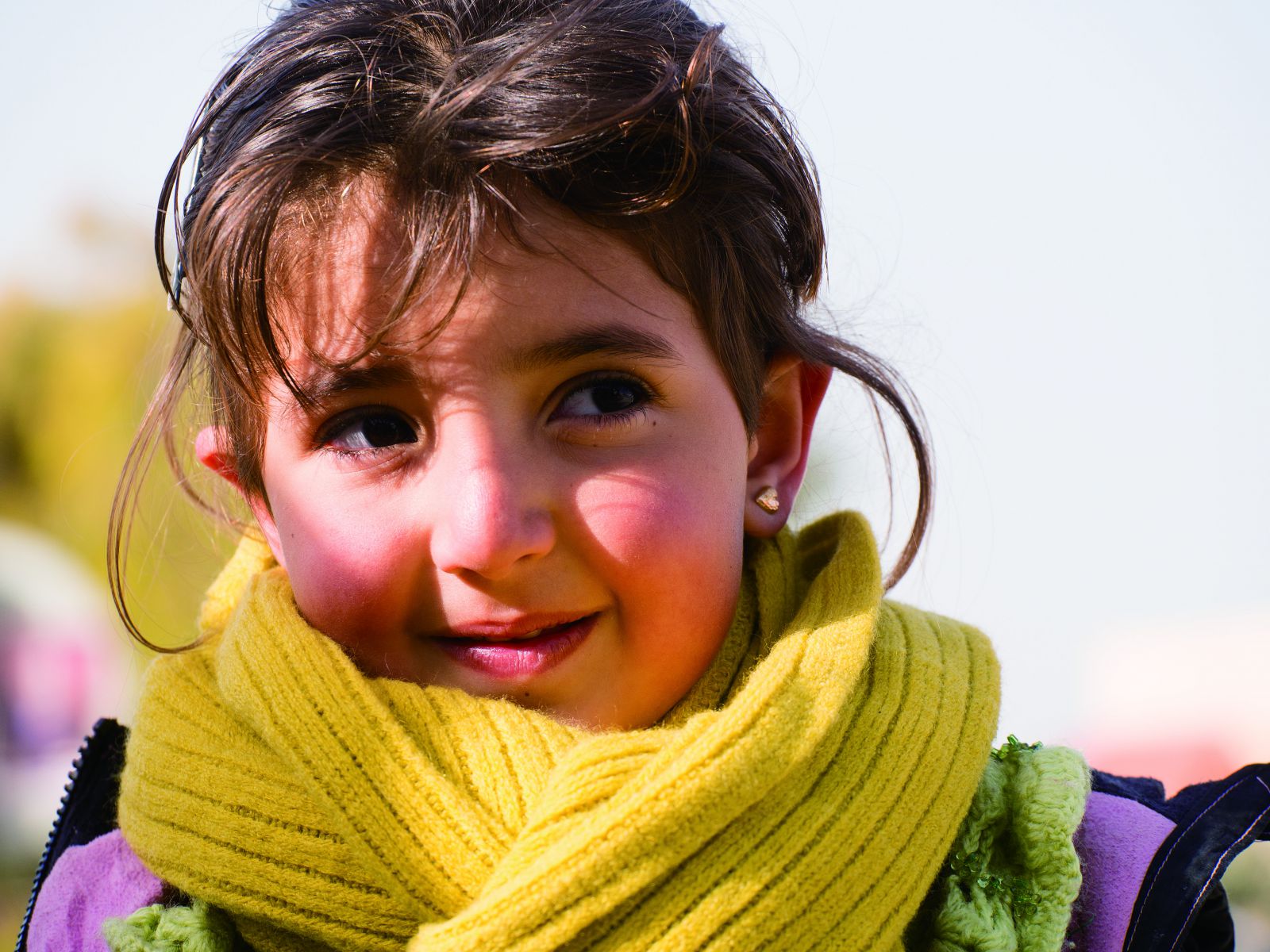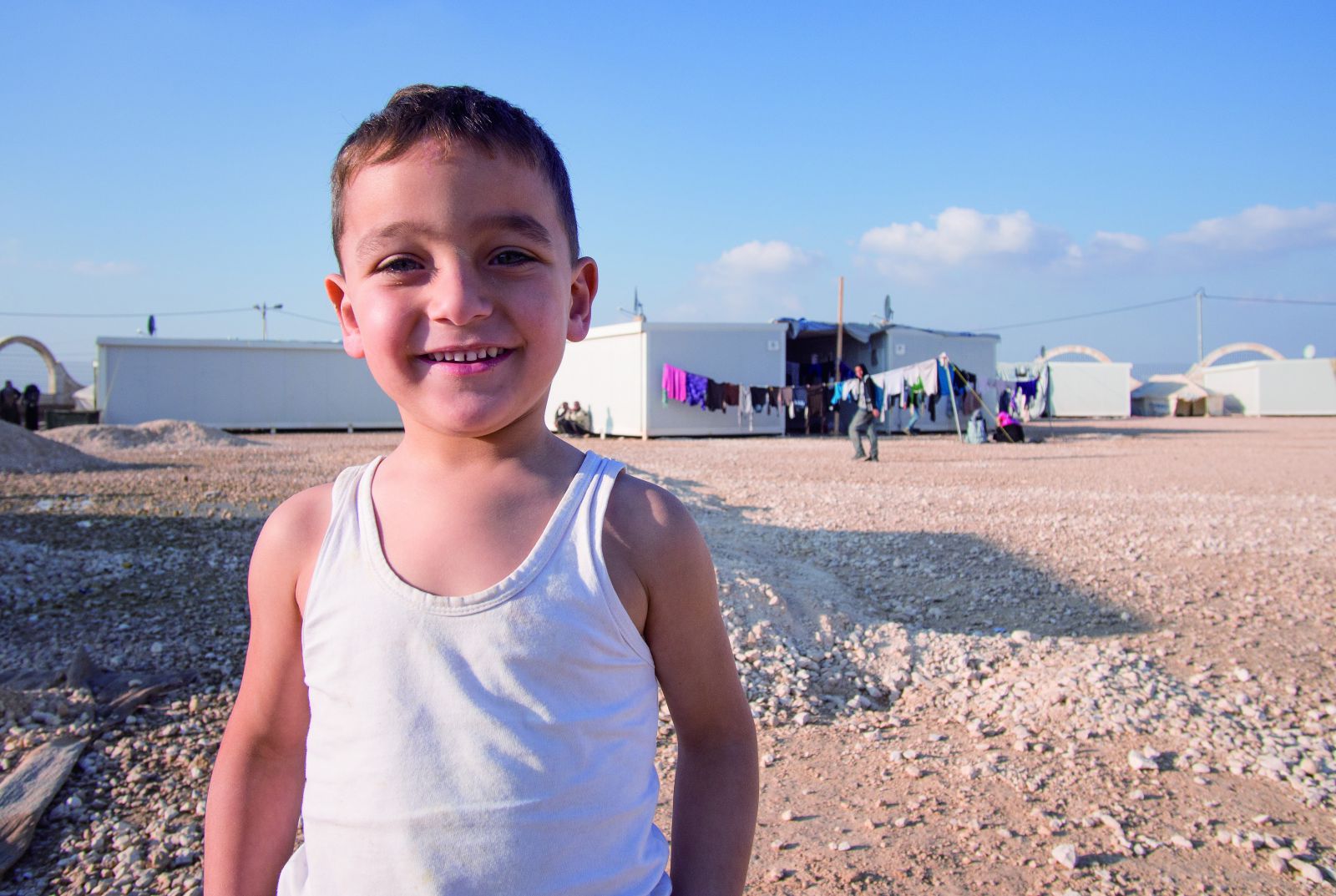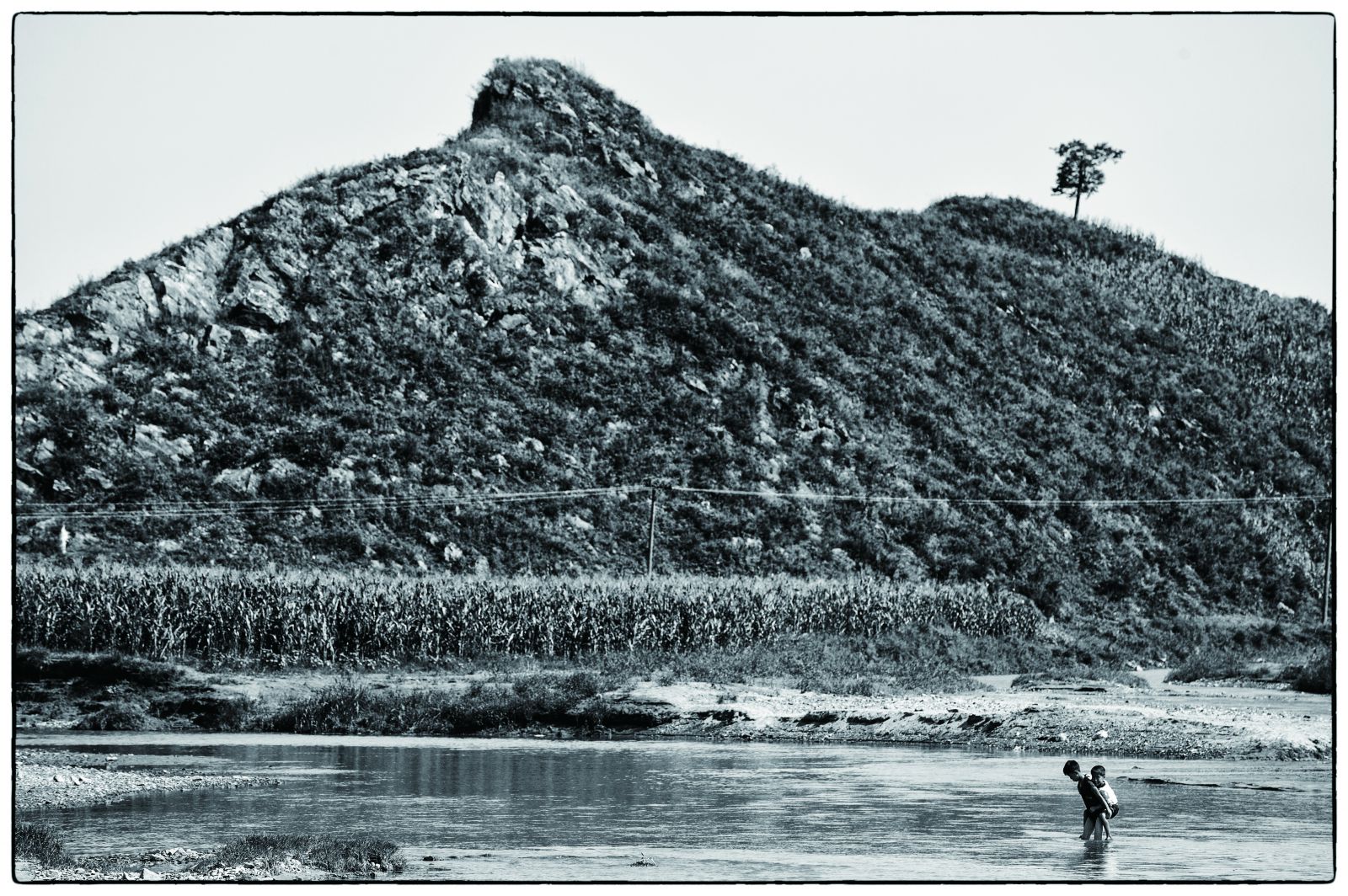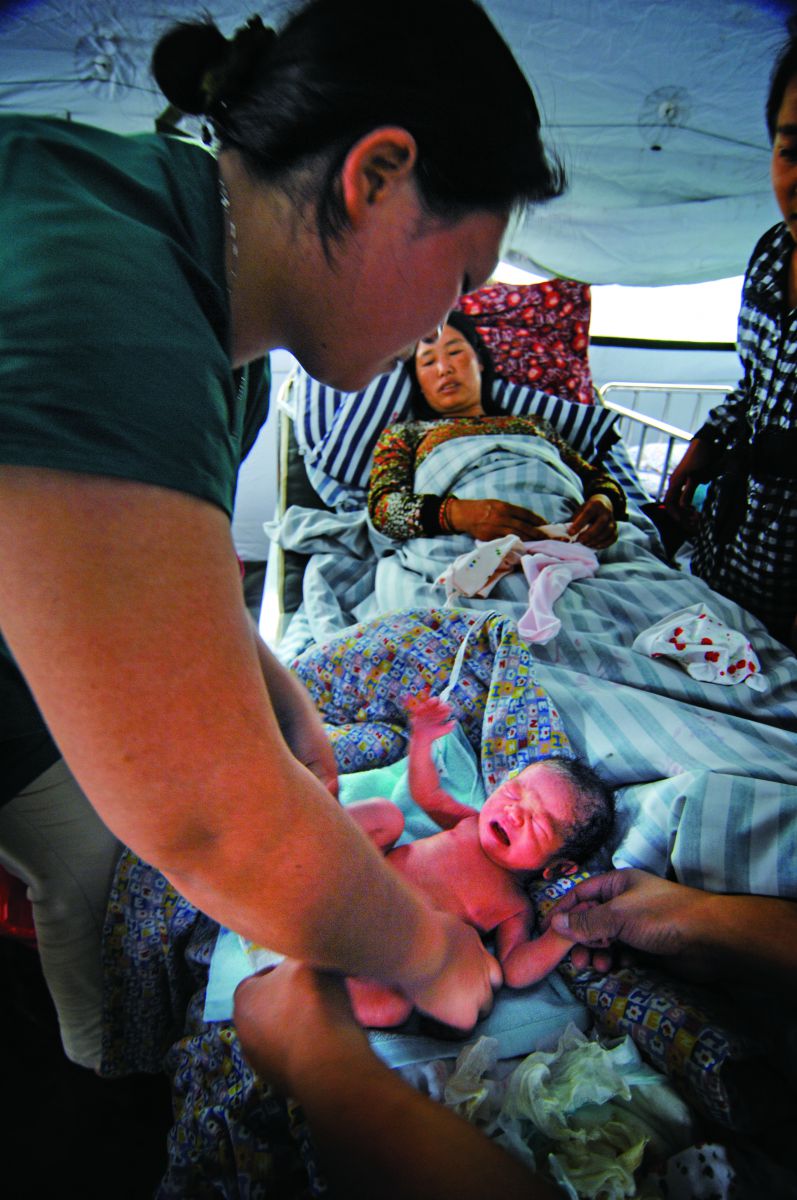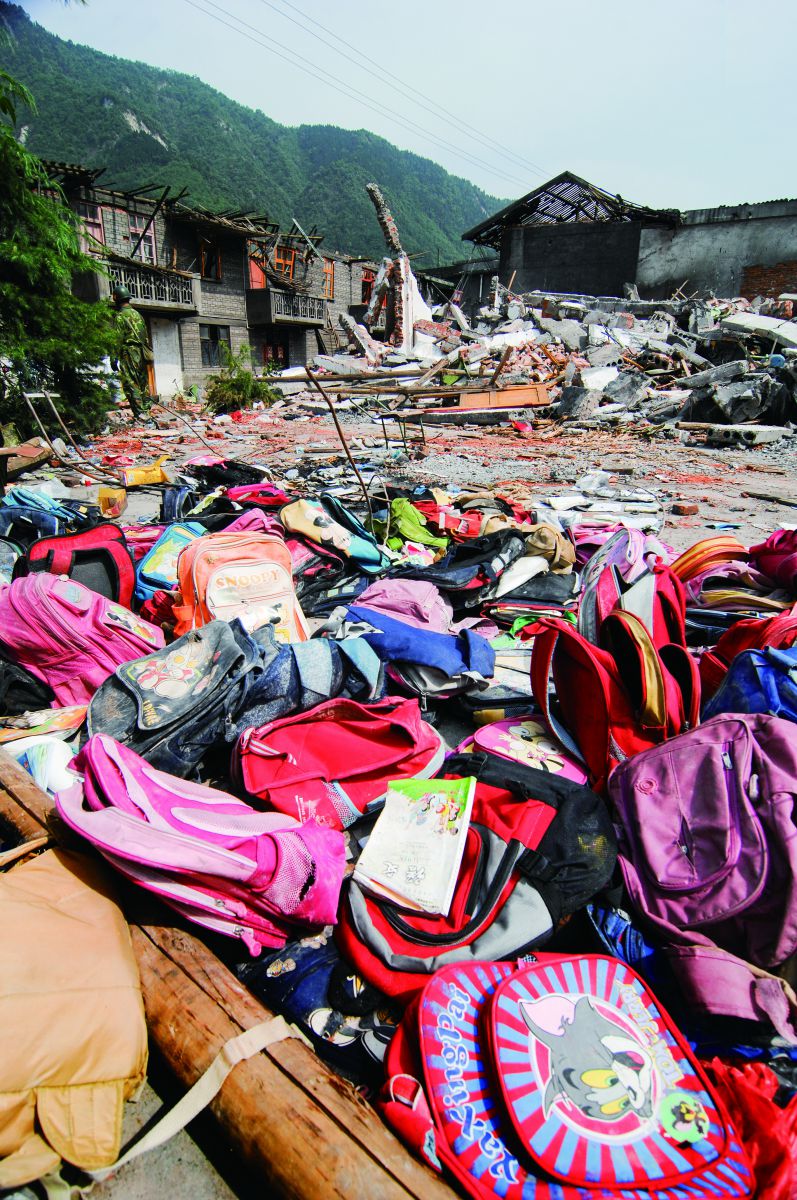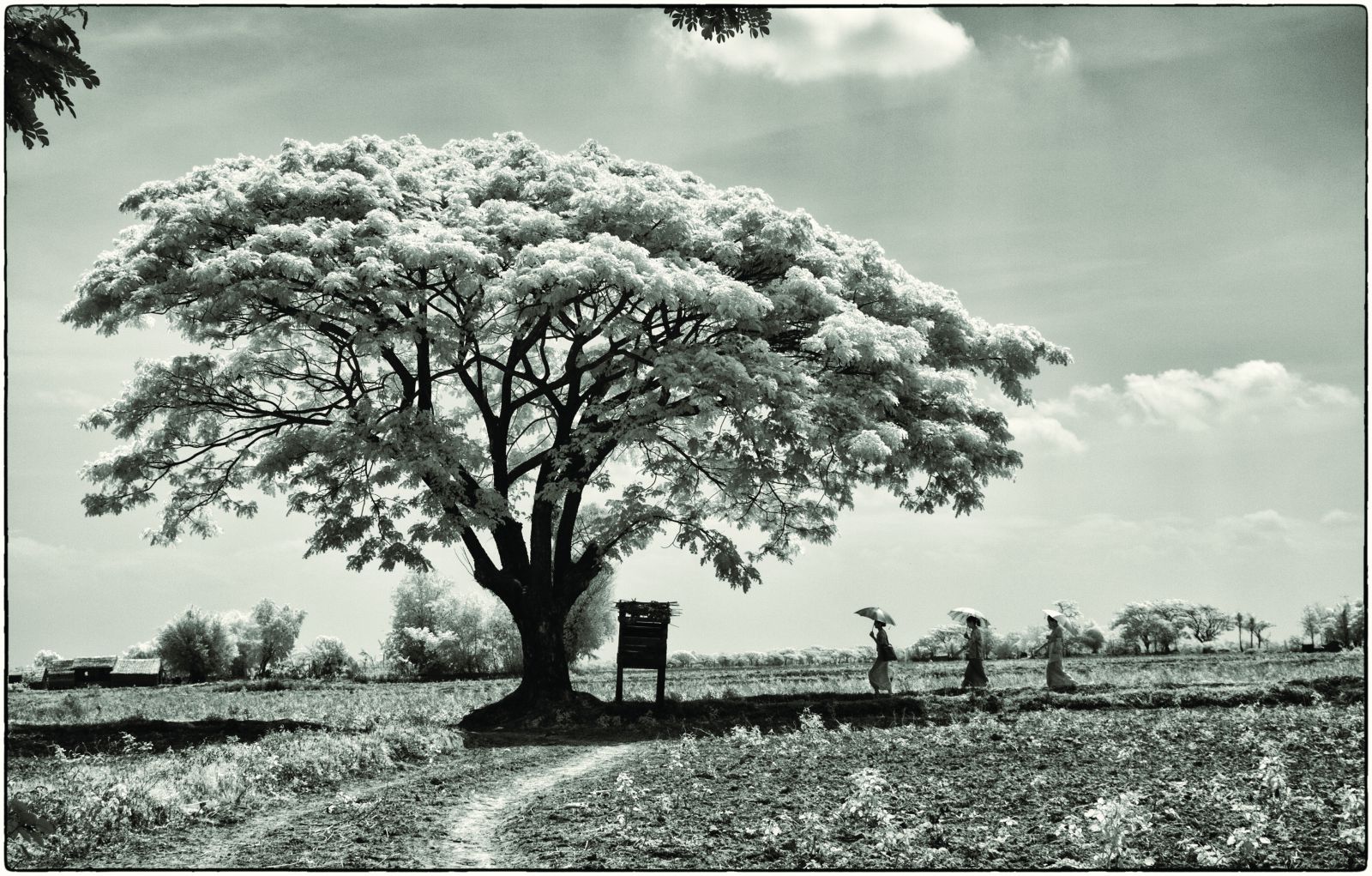

| Unforgettable Children | ||||||||||||
| Text and photos by Hsiao Yiu-hwa Translated by Susan Hu | ||||||||||||
I am childless, but I like children. I like their pure and guileless nature. I have been shooting photographs professionally for quite some time. Whether intentionally or not, sometimes in my work, I have taken quite a few images of children, preserved on film or digital files. In all honesty, many of these children I met only once, and I don’t even know their names. Our paths briefly crossed at a certain time and place, after which we carried on along our respective trajectories. We may meet again some day, but more likely we will never meet again. So I cherish every short encounter with these children, the ways they express themselves, and that truth that represents humanity at its most sincere. I Don’t Ask for Much The winter morning sun brought warmth after a cold, windy night. This young Syrian girl, along with her mother and aunts, arrived at a distribution venue in the city of Ar Ramtha, on the Jordanian border, where free winter clothes were being given out. Waiting for the distribution to begin, Tzu Chi volunteers chatted with local women about the weather and recent developments. Someone took a scarf from a box and wrapped it around the little girl’s neck. Children don’t ask for much. The scarf warmed the girl’s heart and brought a look of contentment to her face. Her faint smile and shy expression were enough to dissolve the austere borderland atmosphere created by the adults. If grownups could be as easily content as this little girl, perhaps she wouldn’t have had to travel long distances and cross borders to escape the war raging in her home country, and to come to this place to receive a scarf.
A Ray of Sunshine in a Refugee Camp Most people from Taiwan, myself included, are not too familiar with the Middle East. We don’t have a good grasp of the region’s political and cultural landscape. We might know about the recent social upheavals, regime changes, and all the displaced people in the region, but we remain ignorant of why things are the way they are. The recent political turmoil in Syria has caused many civilians to flee their homes and flood into neighboring countries to seek refuge. In more than two years, some 300,000 people have escaped to Jordan, many with similar stories: loved ones lost, a home they cannot return to, their risky flight to safety, the undignified lives of the exiled. The border between Tura, northern Jordan, and Tal Shehab, Syria, is a dirt road with no towering walls or barbed wire fences. When I was on assignment in Jordan from the end of 2012 to the beginning of 2013, I was told that every day, hundreds of Syrians crossed the border there to seek asylum. Yet many of them were killed by Syrian boarder guards on the way, before reaching safety. Children alone accounted for 250 lives lost on that dirt road—young lives that ended prematurely. Talking to me, some of the refugees in a camp unleashed a tirade of complaints about their home country and about the camp’s facilities. It was hard for me to understand everything, and I didn’t know how to respond. In contrast to the adult faces filled with discontent and helplessness, this child’s smile was like a ray of sunlight, all the more pure and precious. He was still too young to know misery, and too innocent to understand the tangled web of love and hate and matters of life and death in the adult world. Would a world without grownups be a better one?
He Ain’t Heavy, He’s My Brother Flooding from Typhoon Muifa in August 2011 inundated farmlands in North Hwanghae Province, North Korea, and washed away the small bridge that used to cross this stream. To get across, the boy had to get an adult-size bicycle to the other bank first, and then go back for a younger child, whom he carried on his back across the water. The scene reminded me of a photo from 1951, during the Korean War: a steel bridge across a roaring river, battered by bombs and gunfire and twisted beyond recognition. Civilians, old and young, carrying their few belongings, crawling across the bridge on their way south, fleeing the war. The clash of ideological beliefs between a few grownups left a people divided in two. They are the most distant of neighbors, close enough to hear each other, but relations are icy and interaction is non-existent. The stream was not deep, but the bottom was uneven; the water, though unhurried, was still forceful. The two children staggered unsteadily in the water, but they stuck together and forged ahead. I do not know if they were related, or simply playmates. But no matter. What matters is this: “He ain’t heavy; he’s my brother.” The song came to me in a flash. Six decades have passed since the Korean War ended. Adults from that era now rest six feet under. And I wonder: Will there be a day when brothers in the north and south help each other along, no matter who carries whom, like those children in the photo, and together cross the divide?
Born Survivor The infant, extracted from his mother’s body just four days earlier, was a soft mass, unaware of what had happened. Three days before his birth, the day of the Sichuan earthquake that shocked the world, his mother had been trapped under a collapsed house. She was found by rescue workers and taken to this temporary medical station. Mother and child were lucky to have survived this once-in-a-century tremor. On May 18, 2008, I met 45-year-old Yang Qiju (楊啟菊) and her newborn child at an emergency medical station that resembled a combat field hospital. One of the hardest hit areas, Shifang was a scene of war-like destruction seven days after the quake, so great was the immeasurable loss of homes, hospitals, schools, factories, roads, and human lives. At this time and place, when people were most helpless, the best of humanity was on full display—organizations and individuals from all over China and the world had left everything behind, including complicated relations during more peaceful times, and arrived at the disaster area with relief supplies and a will to help, to do all that was humanly possible to help. Day and night, at disaster sites where foundations were shaky, helpers filled the scene like ants, finding every possible opening and using limited tools or even their bare hands, searching for hope, or releasing souls already lost to the disaster. The earthquake brought about countless stories of people pulled apart, people brought together, sadness, joy. The earthquake crushed families, but also brought out the kindness buried deep within people. The worst brought out the best. Yang Qiju and her newborn child were witnesses to that kindness. I documented its existence with my camera.
The children left in a hurry. They didn’t even have time to retrieve their bookbags or say goodbye to their parents…. On May 12, 2008, a natural phenomenon shook Wenchuan County in China’s Sichuan Province, and rocked the world. The movement of the earth could be felt as far away as Taipei. Six days later, I was in the town of Hongbai, Sichuan. The valley town was only a mountain away from Wenchuan, a straight line distance of about 100 kilometers [82 miles]. The mountains and rivers had shifted, the beautiful scenery a memory. Gone was the elementary school and the laughter from the school yard. Gone were the children, their bookbags the only proof that they had ever existed. The heavens did not allot the children their fair amount of time on earth. After a visit too brief, they followed the gods’ bidding and went to another world, taking with them the hopes of their parents. In this one-child country, some are defiantly nurturing new life, wanting to create new hope. Yet, born to parents of advanced ages and under psychological stress, some of these new lives are not perfect. Even the hope they were supposed to bring is slightly damaged. So it turns out, events take place and pass by. Some things, once gone, are gone for good. All that remains is lingering sorrow.
Anonymous Kindness I played in a soccer match last weekend. Our match was followed by an elementary school-level event. A large group of third and fourth graders sat at the sidelines, waiting to enter the field. I asked the boy next to me what school he went to. He ignored me. I thought it was my Cantonese-accented Mandarin, so I asked him again. Still he looked indifferent, turning his face from me without a response. I was puzzled. My teammate told me: “In this day and world, schools tell students not to talk to strangers for their own protection, especially those who talk funny and look like strange uncles.” If that is indeed the case, then I must apologize for the way I look and sound. I can’t help but regret how children these days interact with people. This incident brings to mind a story. It was April last year in Myanmar. Anyone who has visited Indochina probably remembers the earthen pots or other vessels containing water, placed on country roads, under trees, next to temples or other public spaces, with a couple of cups on the side, meant to offer travelers relief from thirst and heat. Myanmar in April was sweltering. There was not a cloud in the sky, the sun was scorching, and I was on assignment at a small village named Kyauk Tan Kan on the outskirts of Yangon. Under the tree in this picture, a child, roughly the age of the young soccer player mentioned above, appeared next to me. He poured a cup of water from the earthen pot under the tree, brought it over to me with a big smile on his face, and gestured for me to drink the water. It was midday, and the temperature was over 30 degrees Celsius [86°F]. The water offered timely relief. But worried about what it might do to my immune system, I hesitated, and then politely declined. But children don’t get “politely declined,” and still he held out the cup, looking at me expectantly, an expression of pure hospitality and innocence on his face. He did this for no reason at all but that I was a guest from afar, although he had no idea where I had come from or why I was there. Right there and then, what reason could I have to refuse his kindness? I took the cup and gulped down the water, repaying him with a smile, with pursed lips. The child, satisfied, took the cup, went back to the tree, and put the cup back on the pot lid. He waved at me, then skipped on along his way. He didn’t ask me who I was, nor did I ask where he lived. We never knew each other’s names, and perhaps there was no need to. Treating others with kindness, that’s what people do. However, the human warmth which that child showed me, which used to be universal and timeless, is slowly disappearing in our so-called modern civilization.
|














|

